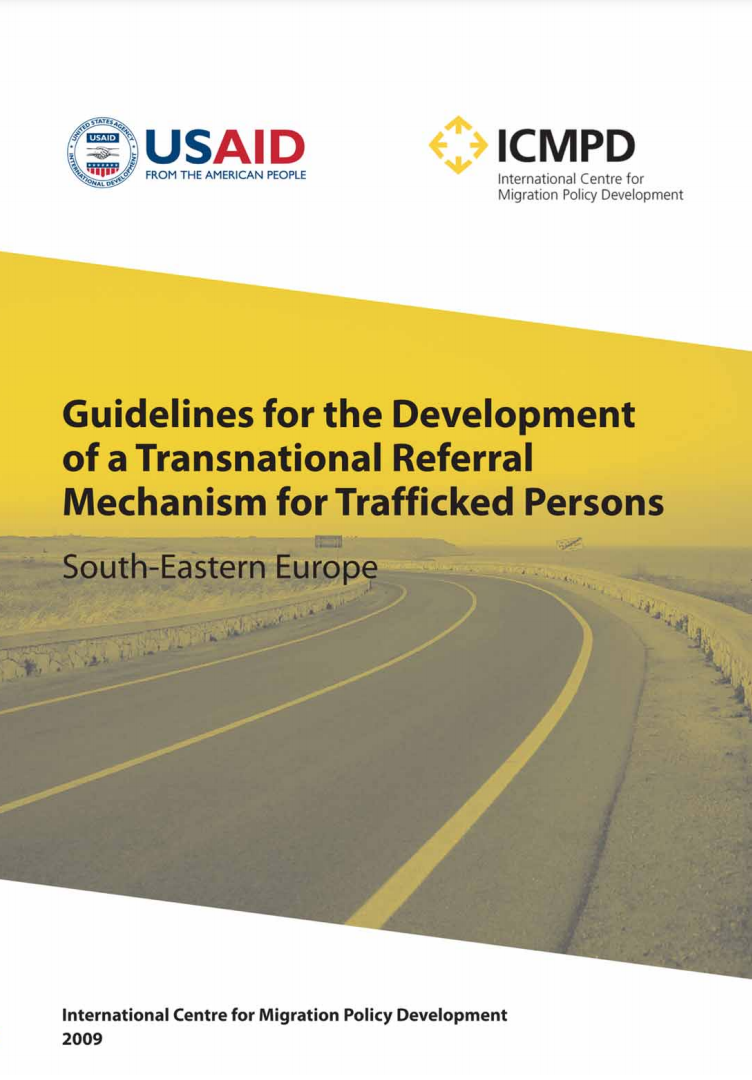The Guidelines for the Development of a Transnational Referral Mechanism for Trafficked Persons: South-Eastern Europe (TRM Guidelines) have been elaborated in the framework of the Programme to Support the Development of Transnational Referral Mechanisms (TRM) for Trafficked Persons in South-Eastern Europe (SEE) implemented by the International Centre for Migration Policy Development (ICMPD) and financially supported by the United States Agency for International Development (USAID). The project was jointly implemented in partnership with the NGO network AntiCorruption Anti-trafficking Action (ACTA), the Migration, Asylum and Refugee Regional Initiative (MARRI), the Ministry of Internal Affairs of Bulgaria and UNICEF Regional Office CEE-CIS.
The TRM Guidelines, divided in five Standard Operating Procedures (SOPs) sections, were jointly developed and validated by the project participants from SEE. Each national implementation team was comprised of representatives from the anti-trafficking coordinator’s offices, prosecutors, representatives of a migration authority, representatives of NGOs and other relevant national anti-trafficking stakeholders. The SOPs serve as a basis for drafting and revising the national versions of the TRM Guidelines according to the national context and normative requirements. The document is fully in line with human rights guidelines, such as the United Nation’s Recommended Principles and Guidelines on Human Rights and Trafficking as well as with latest international and EU standards and policy developments and takes national good practices into consideration.
The TRM Guidelines contain a comprehensive set of measures to be taken by the anti-trafficking stakeholders in order to ensure effective and safe transnational referral of trafficked persons in a range of necessary services. In addition, the Guidelines promote the concepts of government ownership, civil society participation and multi-disciplinary approach as a prerequisite for a sustainable and comprehensive national anti-trafficking response.

